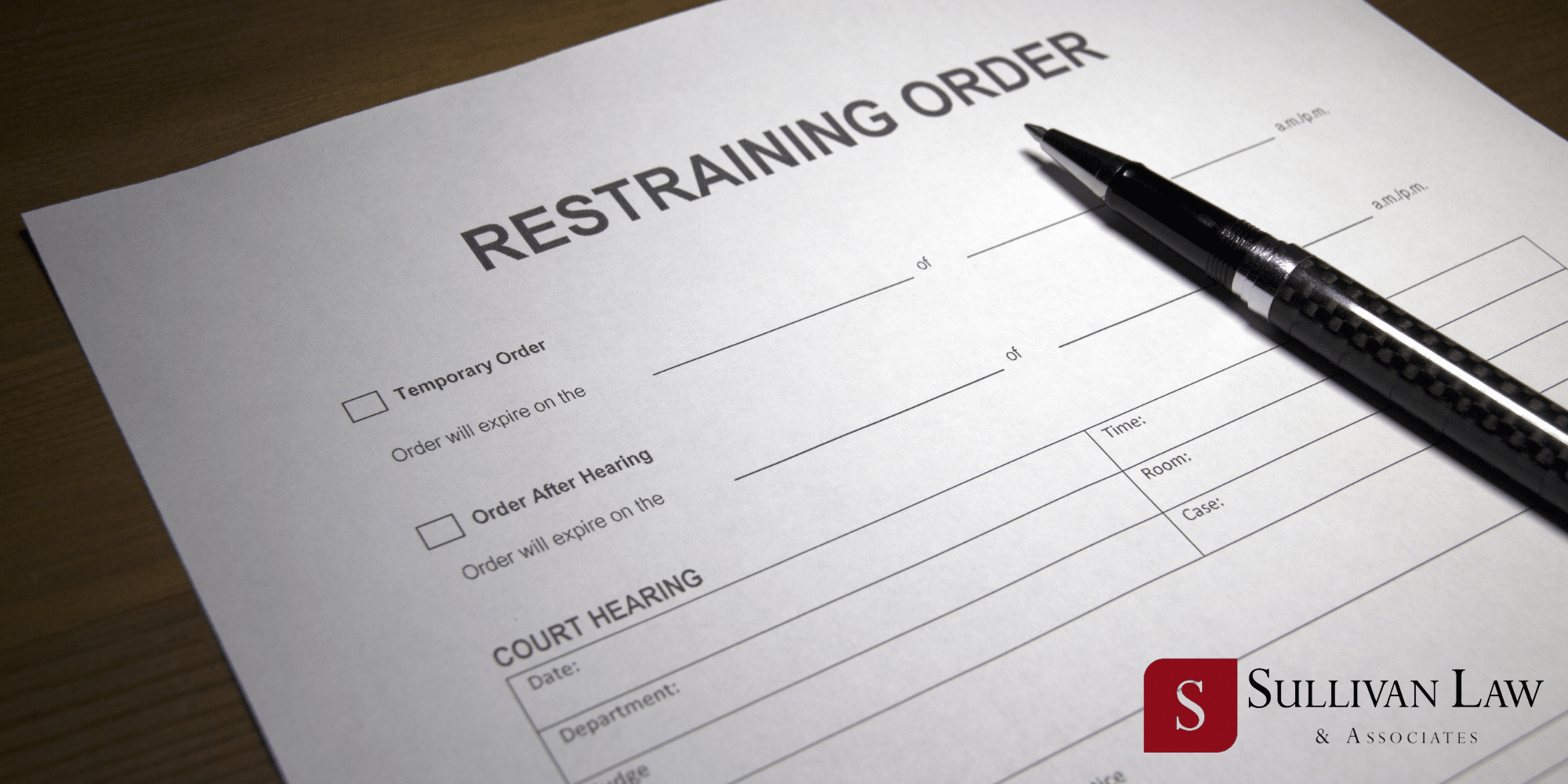- Why Us
- Getting Started
- Our Team
- Practice Areas
- Divorce
- Property & Assets
- Business Valuation
- Child Support
- Child Custody
- Child Visitation
- Domestic Violence
- Spousal Support & Alimony
- Fathers’ Rights
- Grandparent’s Rights
- Restraining Orders
- Post-Judgment Modification
- Separation
- Guardianship
- Mediation
- Paternity
- Move-Away & Relocation
- Special Master
- Pre & Postnuptial Agreements
- Private Judge
- Library
- Media
- Resources
- Contact
- Divorce
- Property & Asset Division
- Child Custody
- Child Visitation
- Child Support
- Spousal Support & Alimony
- Post-Judgment Modification
- Domestic Violence
- Restraining Orders
- Business Valuation
- Move-Away & Relocation
- Paternity
- Separation
- Guardianship
- Pre & Postnuptial Agreements
- Mediation
- Special Master
- Private Judge
Permanent & Temporary Family Law Restraining Order Lawyers in Newport Beach, CA
For a person who is actively harassed or abused by another, a restraining order can offer immediate protection from further harm. This is a type of court order that prohibits a certain person from contacting, harassing, or performing other specific actions regarding another person or persons. In an instance of alleged domestic violence, for example, Mary could obtain a restraining order against Bob, which would prohibit Bob from contacting Mary or even coming within a certain distance of her, her home, or her place of work. If Bob violated the court order, he would face arrest and possibly criminal charges.
Restraining orders have serious consequences, and it is important to understand how to obtain one and how to challenge one. At Sullivan Law & Associates, our lawyers help clients throughout Southern California in restraining order proceedings. We are highly experienced attorneys, widely recognized as one of the leading family law firms in Orange County, and are committed to providing personalized service so we can truly protect our clients’ best interests.
Dealing with a domestic violence restraining order in Orange County? Call Sullivan Law & Associates today at (949) 776-3739 or contact us online to schedule a meeting with one of our skilled restraining order lawyers in Newport Beach.
How to File for a Family Law Restraining Order in California
The first step in filing for a restraining order in California is to fill out all the necessary paperwork. There are some forms that everyone will need to fill out, while others will only apply to persons in particular circumstances. It is important to understand which forms are required for your specific situation.
Depending on your situation, you will need to file one of the following forms:
- All who wish to obtain a restraining order – Form DV-100, Request for Domestic Violence Restraining Order; Form DV-110, Temporary Restraining Order; Form DV-109, Notice of Court Hearing
- When the person you need protection from is your child’s other parent – Form DV-105, Request for Child Custody and Visitation Orders; Form DV-140, Child Custody and Visitation Order; if it applies to your case, Form DV-570, Request for Order: No Travel with Children
- If you want spousal or child support – Form FL-150, Income and Expense Declaration or Form FL-155, Financial Statement (Simplified)
- Local court forms – you may have additional forms to fill out that are required by your local court
Once your forms are ready, they will need to be filed with your local court clerk, who will then give them to the judge for a decision by the next business day. If the judge signs the order, the court will file it, and you will have a temporary restraining order. The paperwork must then be served (delivered) to the restrained person.
To obtain a permanent restraining order, you will need to attend a court hearing. Based on the evidence presented, the judge will make a decision to grant the orders you requested, give some of the orders but not others, or grant none of the orders that you asked for.
How to Fight a False Restraining Order in California
There may be situations where a false restraining order has been wrongly issued. In such cases, you have the opportunity to contest this matter. If you suspect that there is a restraining order filed against you unjustly, it would be wise to consider the following:
- While each case is unique, we strongly advise promptly complying with the terms of the restraining order to prevent any further complications.
- It may be necessary to gather your personal belongings and vacate any shared residence with the alleged victim, or you may be legally prohibited from contacting them.
- Ensure strict adherence to the restraining order and then seek the guidance of a skilled wrongful restraining order attorney in Newport Beach to safeguard your rights.
The Significance of Responding to an Unjust Restraining Order
If you find yourself facing a wrongful restraining order, it is crucial to take proactive measures and submit a response. Additionally, attending the court hearing is essential as it presents your sole opportunity to challenge the order. By partnering with our skilled and experienced family law attorneys, rest assured that we will handle all the necessary proceedings on your behalf. If a restraining order is filed against you, and you do nothing:
- You must obey the terms of the restraining order or face arrest and criminal charges;
- The judge may make orders about child custody, visitation, or support without your input; and
- The restraining order may last up to five years.
If you’re dealing with a wrongful restraining order in Newport Beach, the dedicated attorneys at Sullivan Law & Associates are here to assist you. We will carefully review your restraining order, discuss the circumstances surrounding the situation, and provide guidance on how to proceed with filing a response.
Frequently Asked Questions
How Long Does a Restraining Order Last in California?
California has three different types of restraining orders; emergency protective order, temporary restraining order, and permanent restraining order. The length depends on the circumstances of your case and what the judge deems appropriate.
- Emergency protective order – lasts only five business days or seven calendar days
- Temporary restraining order – lasts up to 15 days or until you attend your hearing for a permanent restraining order, which is usually within three weeks
- Permanent restraining order – lasts up to five years, after which time the victim may request that it be extended another five years or permanently
What Can Restraining Orders Do?
A restraining order is a court order that can order the restrained person to:
- Refrain from incurring significant expenses or engaging in any harmful behavior that could impact your property or the property of your domestic partner or spouse.
- Maintain distance and avoid contacting you, your relatives, your children, or others residing with you.
- Stay away from your workplace, residence, or your children’s schools.
- Vacate the shared living space, regardless of the current living arrangement.
- Refrain from making changes to insurance policies.
- Adhere to child support and visitation orders.
- Return or release specific property as required.
- Keep away from any pets associated with you.
- Fulfill spousal or partner support obligations.
- Meet child support obligations.
- Pay specified bills.
- Prohibit possession of firearms.
What Happens if the Restrained Person Violates the Protective Order?
California has stringent regulations regarding the enforcement of restraining order laws. If a person subject to a protective order violates it, they can face arrest and criminal contempt charges.
The consequences for violating a protective order vary depending on whether it is a civil or criminal violation. In most cases, violating a civil protective order can result in fines and/or jail time. Criminal violations are treated more severely as they involve breaking the law.
A judge can sentence someone who has violated a criminal protective order to a maximum of six months in jail for each violation of an injunction that prohibits harassment or threats against another person.
How Our Restraining Order Lawyers in Newport Beach Can Help
Depending on your situation, our team of attorneys that deal with restraining orders in Orange County may be able to help you in various ways:
- We can help you obtain a restraining order to protect yourself or your children in the face of abuse or harassment
- We can help you challenge an unnecessary restraining order
- We can protect your interests in the face of an alleged restraining order violation
With our experience in family law and criminal law, we are qualified to deliver sound guidance and counsel related to restraining orders and domestic violence. Our Newport Beach restraining order lawyers are here to help you through these challenging times. Contact Sullivan Law & Associates now at (949) 590-8100 for a consultation!



